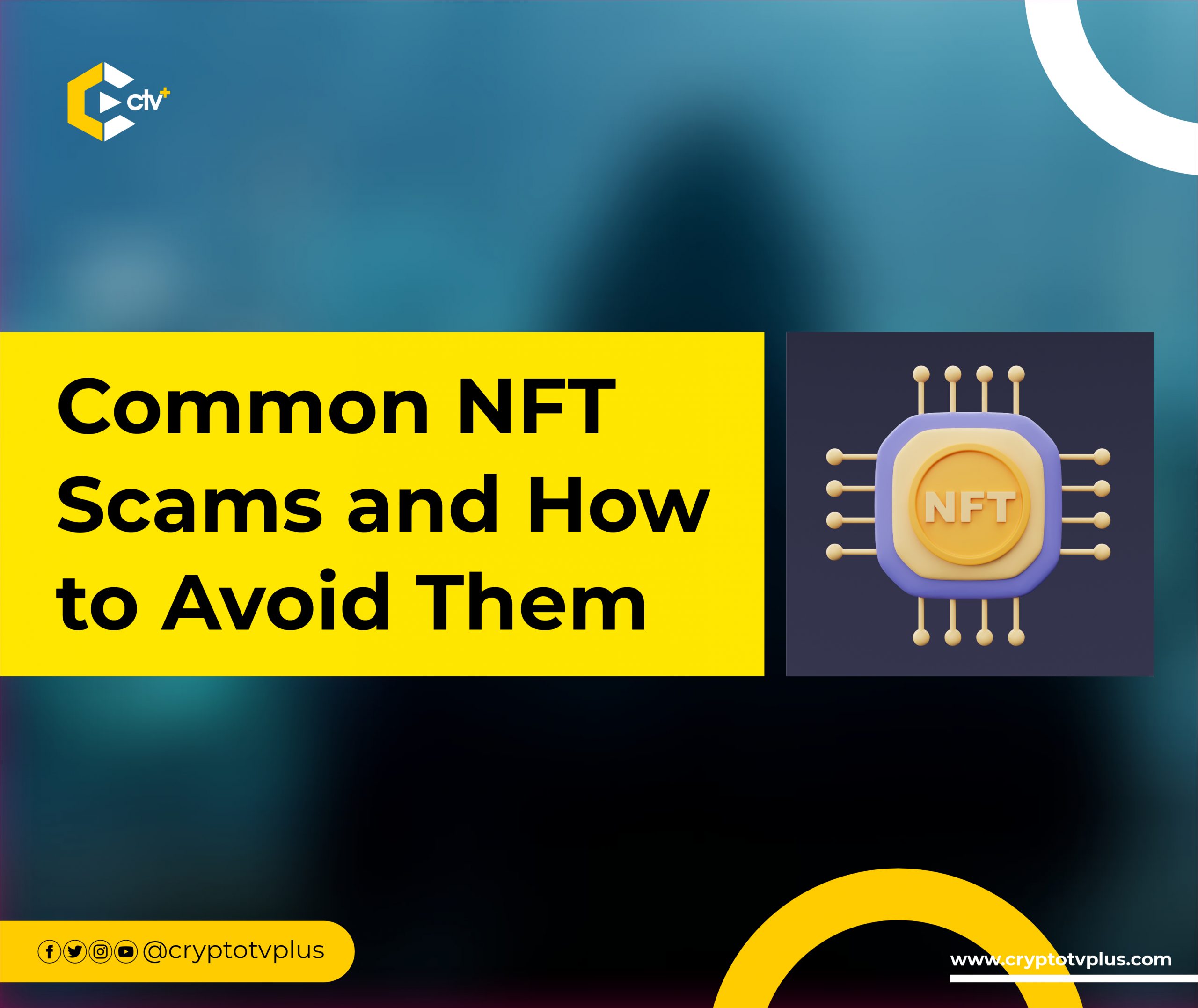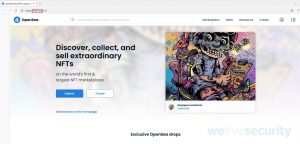NFT
Common NFT Scams and How to Avoid Them

In 2022, the NFT Market has grown exponentially, expanding to about $22 million with thousands of transactions each week. However, as the market grows, so are the possibilities for cybercrime. With several news reports of scams and crimes in the NFT space, how can you steer clear of them?
Let’s look at some popular NFT scams and how to avoid them.
Fake NFT Stores/ Phishing Fraud

A common scamming method used by scammers is to replicate the website and apps of established brands in the NFT space, brands like Opensea are used repeatedly. These replicas are shared digital outlets like social media handles, Discord Servers, and emails. However impressive the replication is, keen eyes would be able to spot the differences in the layout or URL. Take the above image for example.
To avoid falling victim to these kinds of scams, always be sure to check, recheck and double-check the URL and links sent to you concerning any NFT website. It is important that you check the URL of a link before you click or visit the site, especially when it concerns revealing your personal information or financial details.
Another way to avoid being scammed is to check the validity of the NFT you are looking to buy in the marketplaces. Check the history of the collection the NFT belongs to, the background of the seller, and the sale history. You can also check the originality of the NFT or its collection to see if that same NFT is being sold on other marketplaces.
Social Media Impersonation
Like Phishing scams, the perps replicate pages to closely resemble the originals.
On these fake pages, scammers usually convince users of their legitimacy and sell them fake NFT artworks. They can also host fake giveaways and AMA sessions just to pass off as originals.
One thing to always note is that the official pages of most NFT collections almost always have the Twitter Verification tick. However, not all original NFT pages have blue ticks on them.
Another way to avoid being scammed is to do a Search on the NFT page. You can do a simple Google search on the page in question to see if there are other handles with similar names or more followers than the page you are checking for. . Most of the time, such pages with more followers could be legitimate pages. Some legitimate pages may also link to related or backup pages, so you can also check for them. The more you know the real pages, the less you can be scammed by the fake ones.
Other times, scammers give a discount price for fake NFTs to encourage more people to buy them. Note, that if a price seems too good to be true, then it most probably isn’t genuine.
Pump & Dump/ Rug Pull Scams
The Pump and Dump scam involves a person or group of people buying a collection of NFTs in high volume and selling them back to themselves in order to create an illusion of high transactions and to artificially create demand.
One of the ways this is done is through the hype of influencers. Some influencers may be in on the scam, while others may be unsuspecting and use their social power to promote the scam. Knowingly or not, the influencers take actions like sharing the NFTs, its fake volume transactions on their pages, giving false predictions about how the collections would soon rise higher. This whets the appetite of users who would buy, expecting an increase in value but never see it.
The scammers clean up their digital footprints after getting the money.
Rug Pull scams have been quite common of late, and when the victims discover them, it may already be too late.
a lot of these huge NFT "sales" are people selling it to themselves as part of either a pump and dump or a money laundering scheme https://t.co/s5QIIKhUL3
— Robert Evans (The Only Robert Evans) (@IwriteOK) October 29, 2021
Like Pump and dump scams, the scammers rely heavily on the hype for a project, solicit investors and suddenly abandon the project without notice. This usually happens once they believe they have gotten the investors to fully commit and have drained them to the full. They quickly withdraw all funds from the NFT Wallet and delete their social media handles and marketplace profiles.
For example, $SQUID, a cryptocurrency token inspired by the Squid Game TV Show, went up to $2,800 within just a few weeks. It suddenly vanished and it is believed that scammers made away with about $3 million
Some other scams are;
- NFT Auctions and Bidding scams, where the value of an NFT can be manipulated during a legitimate auction.
- Fake Mints: Opensea reports that more than 69% of NFTs mined for free on the platform are fake, plagiarised, or spam.
- Call Representative Scam, where scammers impersonate legitimate NFT Call centers to obtain vital information from users and NFT holders.
Some Safety Tips for You
- Make sure to do your research on each and every NFT project you are interested in.
- Never share your private key with people you don’t know or trust
- Use strong and unique passwords as well as 2 double-factor authentications when possible.
![]()













Pingback: Common NFT Scams and How to Avoid Them by Chigozie Ohakwe Michael – CryptoTvplus Events: NFT, DeFi, Bitcoin, Ethereum, Altcoin Events